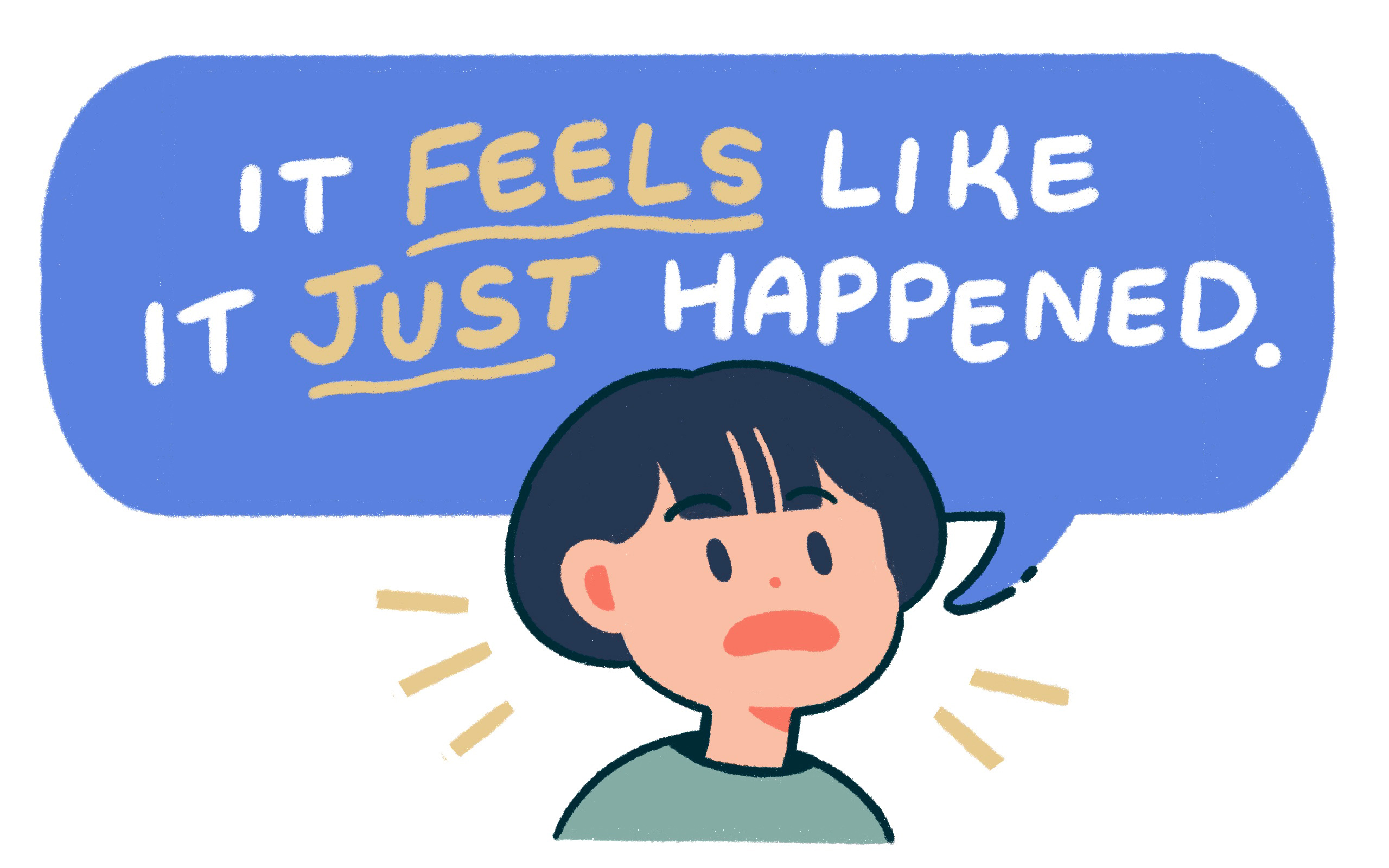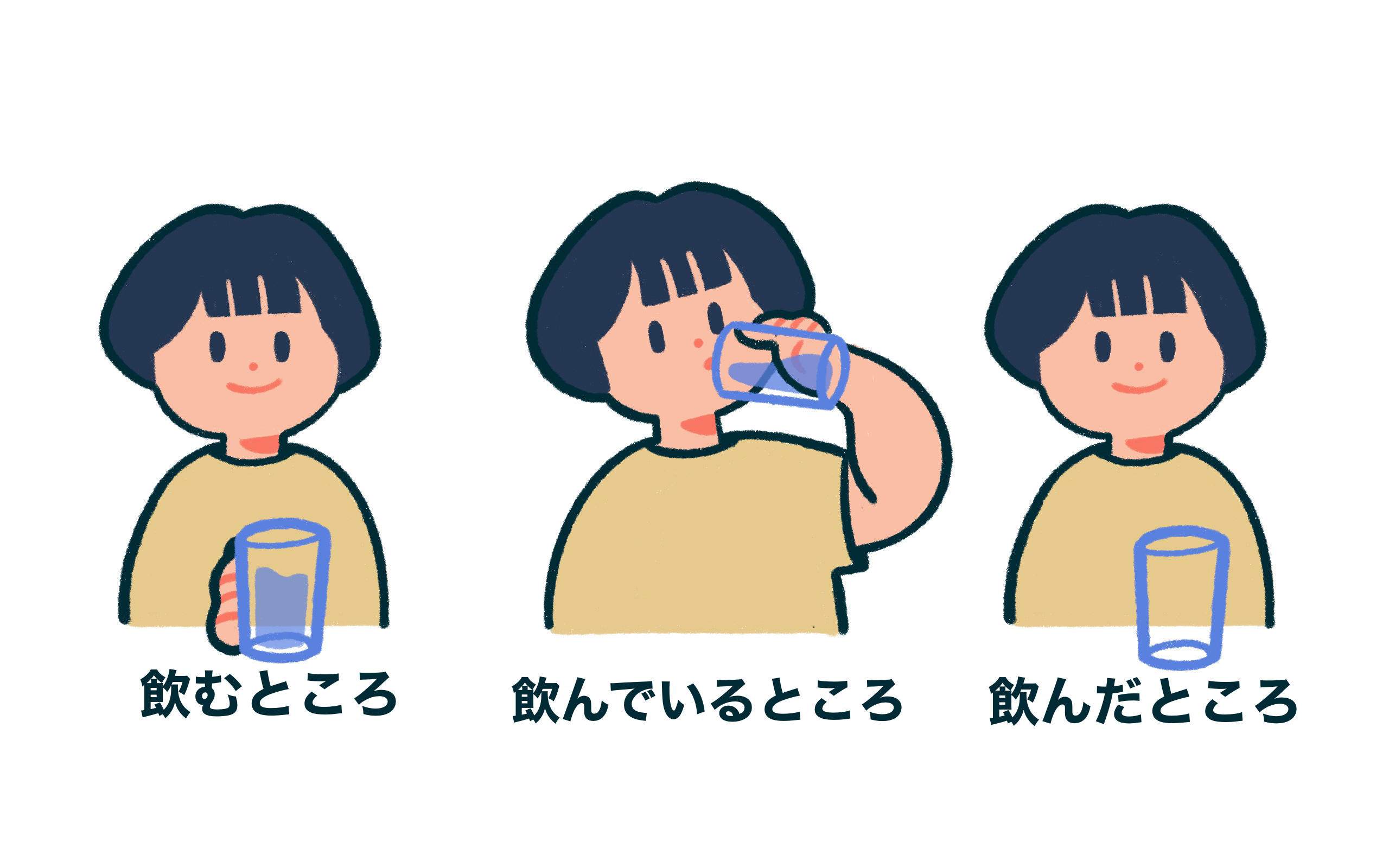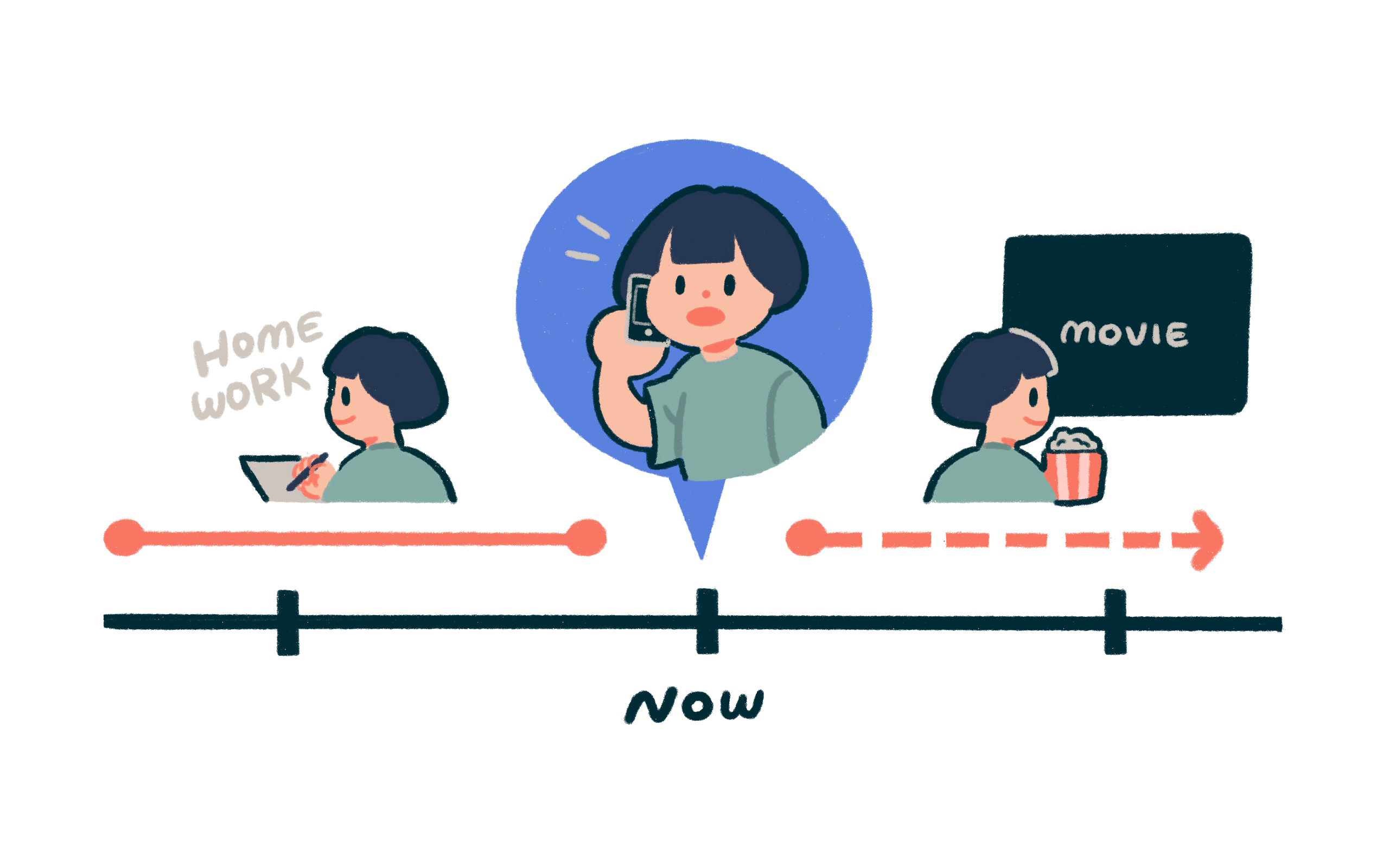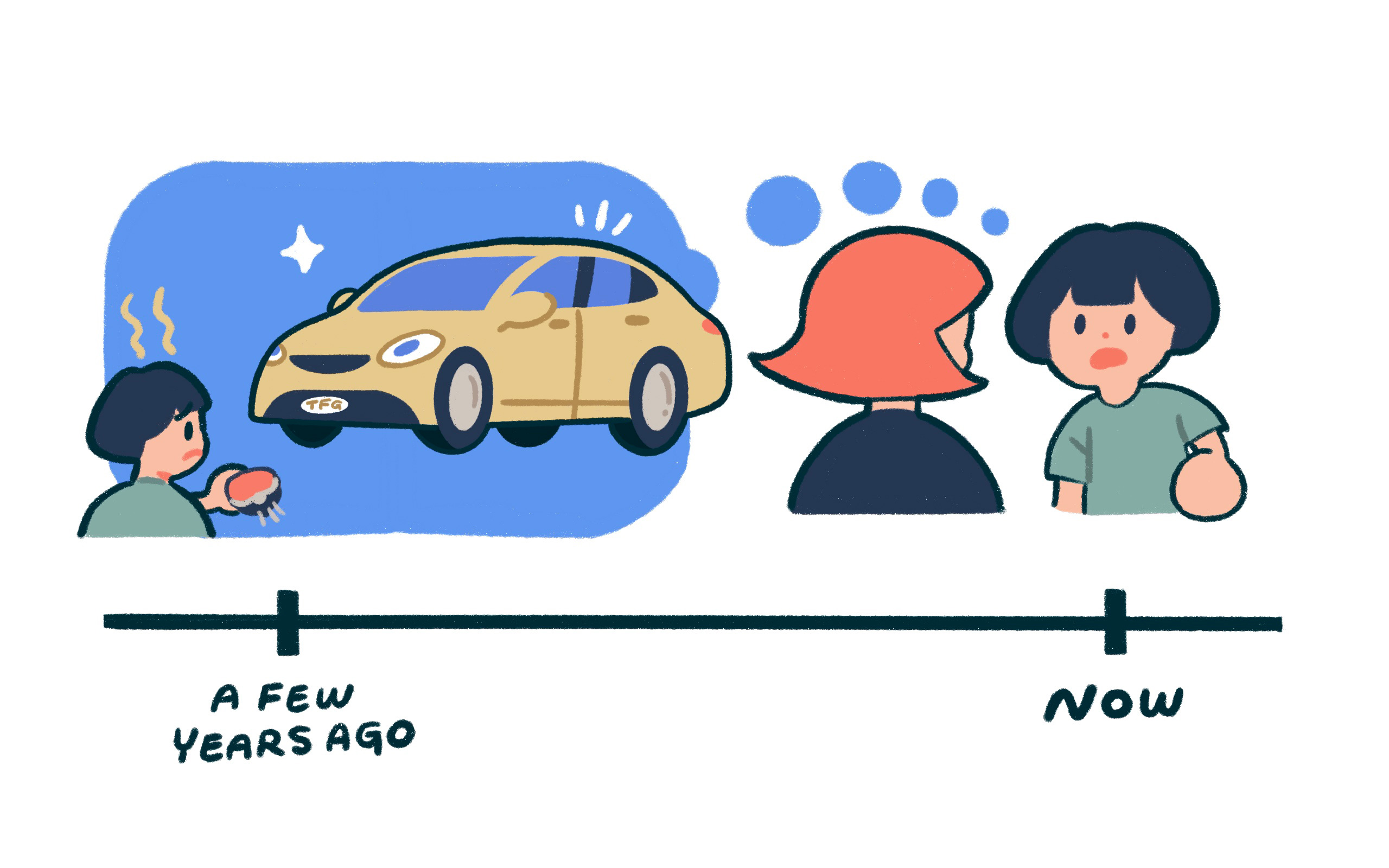How do you describe what you just did in Japanese? Maybe you just brushed your teeth, or you just bought a car. How can you describe those past activities that have just happened?
Well, you’ve got two great options: ばかり and ところ. Say you want to tell someone that you just bought a car in Japanese. To simply say you “bought a car,” it’s 車を買った. However, if you want to say it just happened, you can use either ばかり or ところ and say:
- 車を買ったばかり。
車を買ったところ。 - I just bought a car.
Both are translated as “I just bought a car” in this case. So do they mean the same thing? The answer is no, and that’s why we’re writing this article! Beyond what you see in the English translation, there are differences in nuance, and one works better than the other depending on the situation or what you’re really trying to say. Which one would you use, for example, if you’re keeping someone updated on your whereabouts and you want to let them know you’ve just finished the errand at the car dealership? How about if someone scratches your new car and you want to scream at them that it’s a car you only just bought?
If you’re curious, keep reading! In this article, we’ll cordially introduce you to each one, explain the personality differences between ばかり and ところ, and help you decide which one to whip out depending on the situation. You just plopped yourself down to read this article anyway, so might as well keep going!
Before going deeper on the subject, we also want to clarify that this article will focus exclusively on using ばかり and ところ when they follow verbs in their past tense to talk about recent happenings, as in 〜たばかり or 〜たところ.
You may have also heard ばっか or ばっかし used instead of ばかり, or とこ instead ところ. These are just casual versions of ばかり and ところ. Examples you see in this article primarily use ばかり and ところ, but know that they’re all interchangeable.
Prerequisites: This article assumes you already know hiragana and katakana. If you need a refresher, take a look at our Ultimate Hiragana Guide and Ultimate Katakana Guide. To get the most out of this article, make sure you’re already familiar with tense in general, especially past tense forms. Bonus points if you’re already a little familiar with ところ and ばかり, but don’t worry if you don’t know too much yet. That’s what you’re here for!
What Are ばかり and ところ?
First things first: what is ばかり and what is ところ? Before jumping into the differences between them, let’s first get to know more about what each does, and what each means.
ばかり
ばかり originates from the Japanese words for measurement or amount — 計り, 測り, and 量り, all pronounced はかり — and has a few different meanings today. One of those meanings is “just” or “only.”
In case you’ve never seen how ばかり means “just” or “only,” here’s a quick example. If you want to describe that all someone does is sleep, you can say that they 寝るばかり (only sleeping) and not doing anything else. In the same manner, you can complain that your kid’s doing ゲームばかり (only games) all the time. And when it gets used with past tense verbs (which this article is all about), it basically means “this thing happened, and only just a little time has passed since then.”
When you think about it, “only” or “just” is subjective. You might think of a glass of water as half empty — there’s only this much water — or as half full. It just depends on your point of view.
When ばかり is used to describe a past event, it expresses how something feels like it happened recently to you, the speaker, probably in order to make some kind of point. In that sense, ばかり is pretty subjective in that the actual amount of time that has passed doesn’t really matter. You can even use it to describe something you did a while ago — as long as it feels recent to you in that context.


Here’s an example. You got your nails done a few days ago, and someone asks you to dig a hole for their pet alligator’s funeral. You might indignantly exclaim:
- でもネイルしに行ったばっかりだよ!
- But I just got my nails done!
Technically it’s not something you just did if it happened a few days ago. However, you can use ばかり here because it still feels recent to you, especially considering this situation where someone’s asked you to help them dig a hole in the ground. With these fresh nails? No way!
ところ
Actually, you may know what ところ means already. It’s the same as 所, a Japanese word for “place” or “location.” An important thing to keep in mind here is that ところ doesn’t only mean a “place” in the physical sense — it can also mean a “place” in time.
When ところ is used to say what you just did, it’s like you’re saying, “This thing just happened, and this is where I’m at now.” For example, if you just finished drinking some water, you could say this:
- 飲んだところです。
- I just finished drinking.
By saying ところ in this sentence, you’re simply pointing to the moment shortly after gulping down water and saying, “Here’s where I’m at.”
You can actually use other verb tenses with ところ too. It just depends on which stage of the activity you’re at, and which one you want to point to!


飲むところ is when you are about to start drinking. 飲む is in the so-called present tense, but it can be used for a future action as well. 飲んでいるところ is when you are in the process of drinking, because as you might know, 飲んでいる is the present continuous form. Then, 飲んだところ is when you have just finished drinking, as 飲んだ is past tense. Using ところ, you are simply reporting where you are in the process: “I’m about to do this,” “I’m in the middle of doing this,” “I just did this,” etc.
Using ところ, you are simply trying to state the fact of where you are on a timeline.
Did you notice how ところ is objective compared to ばかり, which depends on the subjective feeling of recency?
Now, let’s take a look at one of the most common examples of how this is used for something that just happened. If you’re on your way to meet up with a friend and they ask you where you are, you might say this:
- 家を出たところ。
- Just left the house.
(Literally: I’m at the point where I just left the house.)
In this scenario, you’re either literally standing outside your front door, you’ve only taken a few steps away from it, or maybe you’ve made it down the street, but not much farther. It’s definitely only been a few short seconds/minutes since you ventured into the outside world. And unlike ばかり, it can’t only be your feeling that you’ve just left the house. It’s an indisputable fact! They’ve got security camera footage to prove it and everything.
Now that you get the basic gist of ところ, wanna try making a full sentence with it? Oh yeah, I know you do. So, what if someone wants to know your progress on that report you’ve been working on?
- 今レポートを書き終わったところです。
- I just finished writing the report.
(Literally: I am at the point where I just finished writing the report.)
That’s it — nothing more to say, just that the report is done, and you done did it just now. This sentence sounds so neutral and indifferent, you could whip it out to your boss and they wouldn’t bat an eyelash. If you wanted to, you could add some emotional color to this statement with extra words or phrases, or even the tone of your voice. But unlike ばかり, ところ is pretty straightforward on its own.
ばかり vs ところ: What’s the Difference?
Alright, we’ve met the subjective ばかり and shaken hands with the more objective ところ. Now, let’s review what each one is about before we move onto the nuances of each.
To reemphasize, ばかり is more subjective and can be linked to the speaker’s feelings, while ところ is more objective and reports where you’re at in “time.”
When you want to make a statement about how recent something feels to you, you may want to use ばかり. It doesn’t matter when it actually was. Its focus is rather on how little time seems to have passed since, so it adds a subjective feel.
However, when you simply want to specify a point in time to describe what you’ve just done, you might want to use ところ. You’re reporting your status or stage of progress objectively by telling “where you are at” in time. These things have probably literally just happened or you’ve just done them, and there’s not necessarily much feeling involved. Not too hard to grasp, huh?
But just to delve a little deeper, we’ll show you examples so that you can compare the two side by side and really see the differences between them.
Comparing the Nuances Between ばかり and ところ
For comparison’s sake, let’s start with conjuring up some situations where it might be more natural to use one over the other.
Situation #1: “I Just Bought a Car”
Hey, remember the example situation of buying a car we provided at the beginning of this article? It’s time to finally find out what the difference is when you use ばかり vs ところ in this scenario.
You now know that ばかり is used when you want to make a slightly stronger statement of how you feel like something “just” happened, whether or not it was particularly recent. You’re probably making a point about how you feel about a certain situation. People often use ばかり to say that it’s inconvenient/nonsensical for [second thing] to happen, because they feel like [first thing] just recently occurred.
For example, look at this sentence about buying a car.
- 車を買ったばかり。
- I just bought a car.
By saying ばかり, you’re putting emphasis on the completed action and how little time you feel has passed since then. You just bought a new car! Maybe someone’s pressuring you to buy a new car, but you feel like it’s way too soon for that since you just bought your current car a few months ago. Or you scratched the car you bought last year, and it’s a shame because you’d hoped to keep it in good condition for much longer. Or perhaps you have to scrap your car, even though you bought it brand new three years ago. Oof!


See how the actual amount of time that’s passed doesn’t matter? Sort of like how people say “it feels like only yesterday!” Tossing ばかり into your sentences can have these layered implications about how you feel about the situation, so make sure you’re using it intentionally.
On the other hand, you also know that ところ is used when you simply want to state the fact of where you are on a timeline. Unlike ばかり, you’re not really putting emphasis on your feelings about the situation or subjectively commenting on the recentness of the event. Instead, you’re pinpointing a specific moment in time.
For instance, you could objectively report this about where you are in the car-buying process:
- 車を買ったところ。
- I just bought a car.
Pretty matter-of-fact! You just bought a car, and that’s where you are at. Maybe you bought a car literally just now, and your mom is wondering where you are in the progress of your errands. She texts you 「今どこ?」 (“Where are you?”), and you’re reporting, “I’m at a point where I just bought a car.” Do you notice how the tone and implication of the sentence varies depending on which one you use?
Here’s another slight difference: Because ところ describes a specific point on a timeline, it carries a nuance that following the completed action, there will be another action. For example, saying 車を買ったところ brings up a timeline in the listener’s mind – maybe going grocery shopping will be the “next thing” you do after buying the car, which you’ll probably tell them in the next breath. But saying 車を買ったばかり doesn’t have quite the same effect.
Situation #2: “I Just Got in the Taxi”
Now let’s look at a situation where either one would be okay, but they carry different nuances. Imagine you’re texting someone you’re meeting up with.
- タクシーに乗ったところ。
- I just got in the taxi.
This sentence is simply reporting that you just got in a taxi. It could be a way to tell your friend that you’re on your way and give an idea of when you’ll arrive. ところ is perfect for keeping someone updated about your whereabouts like this.
- タクシーに乗ったばかり。
- I just got in the taxi.
Whether you should throw out a ところ or ばかり really depends on the context and what tone you’re trying to convey.
On the other hand, if you used ばかり, it sounds like someone (probably the person you’re texting) is rushing you to get to the destination. Maybe they’re texting you things like まだ着かないの? (“Are you not here yet?”) and you’re saying you won’t be able to get there as quickly as expected, because it’s barely been a minute since you got in the taxi.
See? Technically both mean “I just got in the taxi,” but they carry different nuances. While ところ simply reports your progress, ばかり emphasizes how little time has passed based on your feelings.
Situation #3: “I Just Finished My Homework”
Here’s our final scenario. Your friend’s calling to see what you’re up to and ask if you want to grab dinner together. You just finished your homework, so you’re down to go out for dinner. Which one do you think works better — ところ or ばかり? Depending on your choice, you’ll come off differently. Let’s first take a look at an example using ところ.
- いいよ!今宿題が終わったとこ。
- Sounds good! I just finished my homework (and I’m ready to go out).


ところ works well here as it just simply reports where you’re at on a timeline. “But can’t you then use ところ when you can’t go out for dinner too?” you might ask. Well, you’re right. You could use ところ even if you can’t go out for dinner — using it to explain that you’ve just finished your homework and that there’s something coming up next in your agenda, for example:
- 今宿題が終わったところで、これから映画に行くんだ。ごめんね。
- I just finished my homework, and I’m going to a movie now. Sorry.
See how you can use ところ to lay out your timeline like this? Now, let’s look into how ばかり works in this situation.
- ❓ いいよ!今宿題が終わったばかり。
- Sounds good! I just finished my homework (and I need to take a breather first).
Using ばかり comes off as unnatural in this situation where you’re trying to say “yes” to the invitation. ばかり makes it sound like you need a minute to chill out first or something, because the focus is on how little time you feel has passed since you finished your homework. And if you need some time to relax, you probably wouldn’t say “sounds good,” right?
But is it okay to use ばかり if the answer was “maybe a little later,” you wonder? That’s a great guess, because ばかり could actually work in that case. Since the problem with ばかり earlier was that it sounded like you needed a minute for whatever reason, it works great in a sentence like:
- 今宿題が終わったばかりだから、ちょっと後でもいい?
- I just finished my homework (and I need to take a breather first), so is it okay if we go a little later?
ばかり and ところ For Things That Actually Happened A While Ago
Up until now, we’ve said a lot about how ばかり and ところ are used to describe things that have just happened. You just dropped your graphing calculator in the toilet (oops). But time to unleash the whole truth: Both can be used for events that actually happened a while ago, too. Like maybe that poor calculator took the ultimate plunge in 10th grade, and now you’re retelling that story. Stay with me! It’ll make sense in a minute.
For ばかり, this works when the speaker subjectively feels that it hasn’t been much time since the thing happened, but that amount of time is weeks, months, years, etc. And for ところ, this applies when you’re telling a story about the past, and you’re pointing to where you were on that timeline in the story — often using the past tense ところだった.
Want to learn more? Alright, let’s crack open our good friend ばかり first.
Think about this example situation. If a kid begged their mom to buy them a new phone, the ママ (mama) might retort:
- 半年前に買ったばっかなのに?
- Even though I just bought (you a new phone) half a year ago?
This sentence carries a strong emotional tone of “I just bought you a new phone recently, so don’t push your luck, squirt!” If this sentence were an emoji, it would be the incredulous one with the raised eyebrow. 🤨
Whether something can be considered “recent” depends on the situation and people’s feelings about it.
But back to the main point here — see how the thing that happened wasn’t actually that recent, it just feels that way to the speaker? Mama is expressing her opinion that six months is not that long ago to have bought a new phone for the little scamp.
But even so, you probably wouldn’t say something like this if the kid’s asking for a new sponge, right?
- 半年前に買ったばっかなのに?
- Even though I just bought (you a new sponge) half a year ago?
You see how this doesn’t make much sense, right? Hopefully you’re buying new sponges more often than every six months! So even though ばかり has quite a bit of leeway for subjectivity, there are still some boundaries and contexts where it’s just nonsensical to consider an event recent.
But you know what offers a lot less wiggle room? ばかり’s counterpart ところ, because only facts matter to ところ. Let’s shuffle back to the car dealership and revisit the car-buying example, shall we? Compare these two sentences:
- 数年前に車を買ったばかりだ
- I just bought a car a few years ago.
- ❓数年前に車を買ったところだ
- I (am currently at the point where I) just bought a car a few years ago.
See how ところ doesn’t really make sense in this context? Conceivably, someone could feel that a few years ago is recent, so ばかり can be used. But ところ? Sorry buddy, it just won’t fly. Unless you’re time traveling, you did not literally “just now” buy a car “a few years ago.” That would be pointing to two different points on the timeline at the same time, which is bending the laws of spacetime in a way that the Japanese language doesn’t allow!
However, there is a way you can use ところ to talk about things that happened a while ago, and it’s when telling a story about the past — pointing to a past moment of where you “were” on the timeline. Try sticking a past tense だった after ところ instead of present tense だ. In this case, maybe someone invited you to join them on a trip a few years ago, but you didn’t go. And now, you’re explaining what you were up to back when you were invited. You might say…
- ちょうど車を買ったところだったので、お金がなかった。
- I had just bought a car, so I was broke.
(Literally: It was right at the point when I had just bought a car, so I was broke.)


As long as you’re describing a specific point in the past and not the present, you can use ところ for things that happened a while ago. It’s not recent anymore, but it was recent at some point, and that point is what you’re shoving your index finger at when you use ところ this way.
Got it? Good! Let’s move on to just one more grammatical difference between ばかり and ところ.
ばかり for Modifying Nouns
We’ve only talked about when we use ばかり and ところ to describe recent happenings, like “I just bought a dress.” But what if you want to talk about “a dress you just bought,” modifying a noun?
- ワンピースを買ったばかり。
ワンピースを買ったところ。 - I just bought a dress.
You probably recognize this grammatical pattern from previous examples. When the noun comes first like this, either ばかり or ところ is fine, depending on what vibe you’re going for. But if you want to flip the sentence around and start it by saying “The dress I just bought…,” ばかり tends to work better most of the time.
- 買ったばかりのワンピース
❓ 買ったところのワンピース - a dress I just bought
Because ばかり focuses on how little time has passed since something happened, it’s often used to express how new something feels. Maybe you’re saying “The dress I just bought has a hole in it already!” See? It makes sense, since how recently you bought the dress is relevant to the feelings you’re expressing about the situation, which is why ばかり is there.
ばかり is often used like this to describe things you’ve just bought, cleaned, repaired, etc.
On the other hand, ところ simply points to a moment in time. You rarely see ところ being used this way, because the intention to modify nouns is usually to draw attention to how new or fresh something is to you and make a point about that.
People also often use ばかり to describe events that just happened, or someone who just took a particular action, like so:
- 結婚したばかりのカップル
❓結婚したところのカップル - a couple who just got married
Again, this is where ばかり shines — ところ is rarely used this way. You might be about to express feelings about this couple, or at least mention something relevant to how they just got married. Maybe how seeing newlyweds makes you feel happy, or how you’re planning to buy a gift for the couple who just got married. So remember, if you’re modifying nouns, you’re probably going to want to use ばかり.
You Just Learned!
「ばかり」と「ところ」の違いを学んだところですね。
でも今勉強したばかりだから、まだちょっと難しい?
If you could understand (at least most of) the two sentences above and the different vibes they express, congratulations! You’re smarter than you were “just” a few minutes ago.
To sum it up, you can use both ばかり and ところ to describe recent events or actions. But remember, ばかり expresses more subjectivity and feeling about how recently something happened, while ところ gives a more neutral, objective report of where you’re at on a timeline. And you can use them to talk about past events too, in some cases.
Hopefully after reading this article, you’ve found yourself in a slightly smarter ところ in life than you were before!

